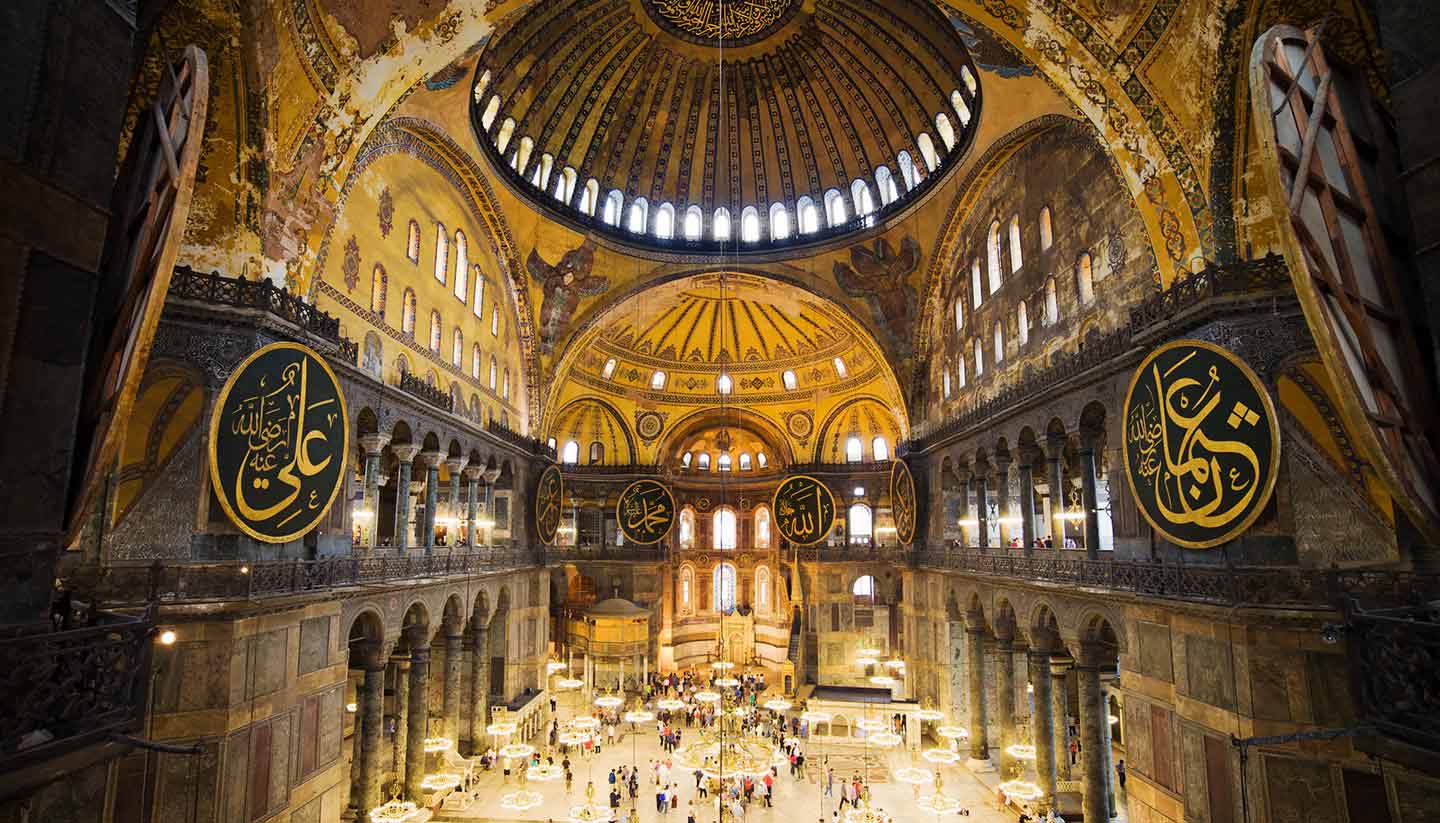Istanbul History
The Istanbul area has been inhabited since at least 6700 BC, but the city really began with the establishment of a Greek settlement in 7th century BC. Legend has it that King Byzas led the colonists here due to the strategic location along the Bosporus Strait, a fact that was to determine the city’s importance throughout the ages.
During a power struggle in the Roman Empire in the late 2nd century, Byzantium was besieged by Septimius Severus, and rebuilt after he became Emperor. By the 4th century, the Empire had expanded to the point that Rome was no longer deemed suitable as capital and Emperor Constantine moved it to Byzantium, which was eventually renamed Constantinople.
When the Empire split in two, Constantinople became the centre of the Eastern Roman Empire, which endured for another thousand years, while the Western Empire crumbled. It became the leading power in Europe and boasted remarkable landmarks such as Hagia Sophia, which symbolised its leadership of the Greek Orthodox Church.
Despite Byzantium's might, the Arab Conquest posed a constant threat, and invasions, including that of 1204 by the Fourth Crusade, weakened the city. Finally, after a 53-day siege, the Ottomans conquered it in 1453, and Istanbul was born.
Under the reign of the Ottoman, stunning monuments including the Blue Mosque sprang up, while schools, hospitals and publics baths were built alongside the Grand Bazaar. Istanbul, then the capital of the Ottoman Empire, became a major cultural, political and commercial powerhouse and soon the centre of the Islamic world.
The Ottoman Empire remained powerful and sprawling until WWI, when it was defeated by the Allies. Occupation and ruin followed, until Mustafa Kemal Ataturk led a war of independence and established the Republic of Turkey in 1923.
Ataturk modernised the new state along Western lines and moved the capital to Ankara, but Istanbul continued to grow with new public squares and boulevards constructed in the 1940s and 1950s. In the 1970s, Istanbul's population rapidly increased, eventually creating a major world metropolis.
Did you know?
• The longest-reigning Sultan of the Ottoman Empire, Suleiman the Magnificent, was admired as he protected his Jewish subjects by issuing a firman denouncing blood libels against the Jews.
• The mighty Topkapi Palace of Istanbul was built on the site of the city’s old Acropolis.
• Although the Fourth Crusade of 1204 was intended for Jerusalem, it culminated in the sacking of Constantinople (now Istanbul), which was Europe’s greatest city at the time.

